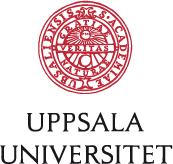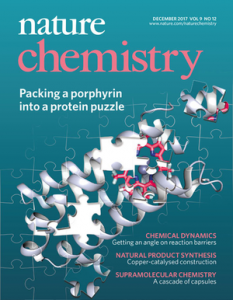 The week at Retraction Watch featured a praiseworthy retraction by a Nobel laureate, a finding of research misconduct in a much-watched case involving fish and microplastics, and death threats against a journalist reporting on a politician’s plagiarism. Here’s what was happening elsewhere: Continue reading Weekend reads: Peer review “ineffective and unworthy;” science a “profiteering enterprise;” Beall’s boss speaks
The week at Retraction Watch featured a praiseworthy retraction by a Nobel laureate, a finding of research misconduct in a much-watched case involving fish and microplastics, and death threats against a journalist reporting on a politician’s plagiarism. Here’s what was happening elsewhere: Continue reading Weekend reads: Peer review “ineffective and unworthy;” science a “profiteering enterprise;” Beall’s boss speaks
US court denies virus researcher’s latest appeal challenging 7-year funding ban
 Scott Brodie has almost run out of options.
Scott Brodie has almost run out of options.
A former professor at the University of Washington, Brodie is currently involved in his third lawsuit challenging a finding of scientific misconduct and a seven-year funding ban handed down in 2010 by the U.S. Department of Health and Human Services’ Office of Research Integrity. He says that in the time since his case was heard by an administrative law judge at the ORI level, new evidence has come to light that shows he “did not have a ‘full and fair opportunity to litigate’ the issues.” His lawsuit sought a court order to have the ORI revisit its decision.
Last year, a U.S. District Court judge dismissed the case, saying it revisited old issues that had already been litigated, but Brodie appealed that decision. Now, his quest may have come to an end: On Nov. 27, the U.S. Court of Appeals for the D.C. Circuit dismissed the appeal. If he wants to continue the case, Brodie’s only remaining option is to appeal the decision to the U.S. Supreme Court.
In the court order, the panel of three judges wrote:
Continue reading US court denies virus researcher’s latest appeal challenging 7-year funding ban
Journalist gets death threats after reporting plagiarism accusations against Croatian official

Plagiarism scandals involving top government officials in the Balkans are not rare. But when Croatia’s defense minister Damir Krstičević was accused last week of plagiarizing parts of his research project, things got ugly.
The minister summoned a press conference within a day, in which he indignantly downplayed any plagiarism accusation and turned the tables by verbally attacking the journalist who first printed the allegations. Following the press conference, the journalist received death threats on social media.
Nenad Jarić Dauenhauer, science reporter for a popular news website, Index.hr, reported how the minister’s 1997/98 paper at the United States Army War College in Carlisle, Pa., contained several paragraphs that seemed to be completely copied from two other works.
Whether the college will act on this new revelation is unclear. The public affairs office hasn’t yet responded to our request for comment.
Author of controversial Science fish-microplastics paper committed “intentional” misconduct, says Uppsala
 An investigation at Uppsala University has found the authors of a retracted Science paper — which explored the threat of human pollution on fish — guilty of misconduct.
An investigation at Uppsala University has found the authors of a retracted Science paper — which explored the threat of human pollution on fish — guilty of misconduct.
The decision, published yesterday, states that both authors—Peter Eklöv and Oona Lönnstedt—“violated the regulations on ethical approval for animal experimentation,” and Lönnstedt, the paper’s corresponding author, “fabricated the results.”
Eklöv told us: Continue reading Author of controversial Science fish-microplastics paper committed “intentional” misconduct, says Uppsala
Professor sues UC Davis over forced retirement following misconduct inquiry

Last year, a professor brought a suit against his former university after it forced him to retire. Now, he’s adding defamation to his list of allegations.
In a lawsuit filed July 14, 2016, Ishwarlal “Kenny” Jialal, a cardiovascular researcher who worked at the University of California, Davis Medical Center from 2002 to 2016, alleges the school breached the separation agreement that led to his ouster. The university forced him to retire following a misconduct inquiry in which he was cleared of wrongdoing, and later stripped him of emeritus status. Before a trial date could be set, Jialal decided he wanted to add to the list of allegations; in an amended complaint filed Oct. 23, 2017, he says individuals at UC Davis badmouthed him to a potential employer and cost him a job.
Jialal is seeking unspecified monetary damages, an order that would rescind the separation agreement that led to his departure, injunctive relief, and attorney’s’ fees and other costs related to the suit.
A spokesperson for UC Davis told us: Continue reading Professor sues UC Davis over forced retirement following misconduct inquiry
Caught Our Notice: Forgot to make your article open access? It’ll cost you (with a correction)

Title: Industrial antifoam agents impair ethanol fermentation and induce stress responses in yeast cells
What Caught Our Attention: When authors decide they want to make their articles freely available after they’ve already been published, how should publishers indicate the change, if at all? Recently, Ross Mounce (@rmounce) thought it was odd a Springer journal issued a formal correction notice when the authors wanted to make their paper freely available, and we can’t say we disagree. As he posted on Twitter:
University investigation finds misconduct by bone researcher with 23 retractions

As a bone researcher continues to accrue retractions, an investigation at his former university has found misconduct in more than a dozen papers.
On Nov. 15, Japan’s Hirosaki University announced it had identified fabrication and authorship issues in 13 papers by Yoshihiro Sato, and plagiarism in another.
Sato, a professor at Hirosaki University Medical School from 2000 to 2003, died in January. He was last affiliated with Mitate Hospital. Multiple retractions in recent months have pushed Sato higher up our leaderboard; by our count, he now has 23 retractions and the university said there are likely more to come. Continue reading University investigation finds misconduct by bone researcher with 23 retractions
”Definitely embarrassing:” Nobel Laureate retracts non-reproducible paper in Nature journal
 A Nobel Laureate has retracted a 2016 paper in Nature Chemistry that explored the origins of life on earth, after discovering the main conclusions were not correct.
A Nobel Laureate has retracted a 2016 paper in Nature Chemistry that explored the origins of life on earth, after discovering the main conclusions were not correct.
Some researchers who study the origins of life on Earth have hypothesized that RNA evolved before DNA or proteins. If true, RNA would have needed a way to replicate without enzymes. The Nature Chemistry paper found that a certain type of peptide — which may have existed in our early history — made it possible for RNA to copy itself.
Jack W. Szostak—a professor of chemistry and chemical biology at Harvard University in Cambridge, Mass., who shared the 2009 Nobel Prize in Physiology or Medicine with Elizabeth Blackburn and Carol Greider for their pioneering research on aging—told us he was “incredibly excited” when he “thought we had at least a partial solution to this problem,” which researchers have been working on for over 50 years.
But in subsequent experiments, Tivoli Olsen — a member of Szostak’s lab — could not reproduce the 2016 findings. When she reviewed the experiments from the Nature Chemistry paper, she found that the team had misinterpreted the initial data: The peptide in question did not appear to provide an environment that fostered RNA replication.
The errors were “definitely embarrassing,” Szostak told us: Continue reading ”Definitely embarrassing:” Nobel Laureate retracts non-reproducible paper in Nature journal
When publishers mess up, why do authors pay the price?
 Springer has retracted two papers, which appeared online earlier this year in different journals, after discovering both were published by mistake.
Springer has retracted two papers, which appeared online earlier this year in different journals, after discovering both were published by mistake.
A spokesperson at Springer explained that the retractions are “due to a human error.”
According to one of the retraction notices, published in Archive for Mathematical Logic, the paper had not yet undergone peer review and the author plans to resubmit his paper to the journal. The other retraction notice, published in Arabian Journal of Geosciences, simply states that an “error in the submission system” is to blame. Unfortunately, in both cases the authors now have a retraction on their record, seemingly through no fault of their own.
Neither notice indicates what publisher glitches led to the premature publications. We asked the spokesperson for clarity, but she did not elaborate. When asked whether Springer has made changes to prevent these errors from happening again, the spokesperson said:
Continue reading When publishers mess up, why do authors pay the price?
Caught Our Notice: What if you find out a paper relied on expired herbal supplement?

What Caught Our Attention: The researchers were studying how curcumin, a component of the spice turmeric, can inhibit lung cancer metastases. But upon learning that the primary material had been expired at the time of testing (and realizing they were unable to repeat their experiments), the researchers pulled their paper. Expiration dates do have safety factors built in, but attention to such details is imperative in research. Continue reading Caught Our Notice: What if you find out a paper relied on expired herbal supplement?